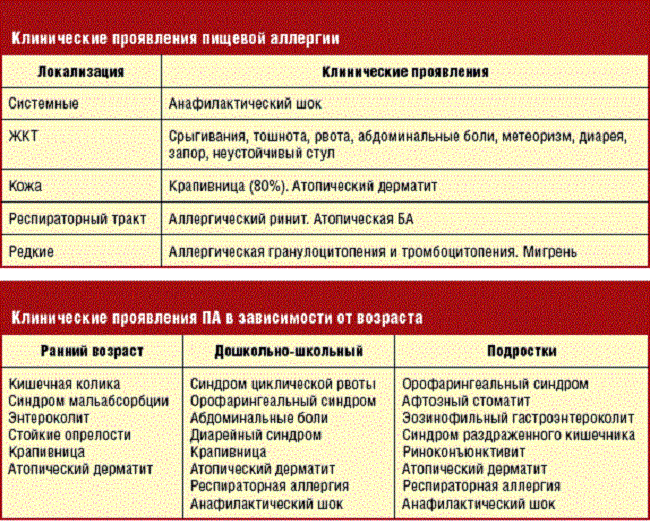The article contains answers to the most common questions regarding eggs in the children's menu.
Content
- How many months can an egg be given to a child?
- How to introduce an egg into a child feeding a child, how to give for the first time?
- When can a child give an egg yolk?
- When can you give an egg protein to a child?
- When can you give your child a whole egg?
- How many chicken eggs can be eaten per day for a child, a week to a year, a year old, at 2 years old?
- Quail eggs to children: at what age? How many quail eggs can a child up to a year, permanent, at 2 years old?
- Is it possible for children raw quail eggs?
- Quail eggs for atopic dermatitis in children
- Is it possible for a child allergic to quail eggs?
- Can children have eggs every day?
- Is it possible for children to be soft and raw eggs?
- How does an egg allergy manifest in children?
- Illumination of eggs from allergies for children
- Когда можно яйцо цесарки ребенку
- When can you get duck eggs for children?
- Video: complementary foods: how to give yolk a baby?
Recommendations and tips are of a general nature without taking into account the individual characteristics of each individual organism.
How many months can an egg be given to a child?
A half -year -old baby is not enough beneficial substances that are contained in breast milk. Basically, there are not enough proteins and mineral salts - iron, calcium, phosphorus, etc. In addition, the child’s gastrointestinal tract is ready for eating, more rough than milk or mixture. This means that it is time to introduce complementary foods.
General recommendations of pediatricians of the "old school" regarding egg feeding:
- The egg in the diet is recommended to be administered at the age of 6 ½ months, provided that there are no allergy sufferers among the relatives of the baby.
- Otherwise, acquaintance with this food should be postponed until the child reaches the age of 9 months.
The modern view of complementary foods is somewhat different from the above recommendations: many Russian pediatricians, including the candidate of medical sciences Yakovlev Ya.Ya., believe that the child’s acquaintance with eggs is better to start from 12 months. This is due to the high risk of allergic reactions to this food product.

How to introduce an egg into a child feeding a child, how to give for the first time?
Acquaintance of a child with an egg begins with very small dosages (literally the size of a match head). Currently welded egg yolk, as a less allergenic part of the egg, is the best option for the children's diet. The yolk is thoroughly rubbed and mixed with a small amount of breast milk or milk mixture.
Important: insufficiently heated yolk (soft -soft egg or ovarian glazing) can become a source of infection with salmonellosis!
The recommended daily product rate for children (taking into account age) is as follows.

Important: The frequency of egg yolk is 2-3 times a week.
When can a child give an egg yolk?
No pediatrician will give a definite answer. It all depends on the health of the child and the quality of the eggs. The main recommendations for the introduction of egg feeding were considered at the beginning of the article.
Important. Feeding products, including an egg, are introduced taking into account several rules.
- Acquaintance with a new product in the menu occurs after a morning walk in the fresh air during a day of food.
- Be sure to control the baby's reaction to the yolk. Be careful: the reaction of the body to the allergen may not be followed immediately, but within 1-2 days after eating!
- The second trick of the yolk occurs two days after the first acquaintance with the product (provided that there are no allergic reactions). If negative reactions are still present, remove the egg from the child’s diet for 4-5 weeks.
When can you give an egg protein to a child?
Egg protein is a strong enough allergen. Introduced into the child’s diet after a year and only after a successful acquaintance with egg yolk.
When can you give your child a whole egg?

The egg as a whole can be used by a child at the age of "1+".
From a year, you can also gradually introduce products into the child’s menu, which includes:
- egg powder
- egg yolk
- egg white
- egg albumin
Important: The composition of finished vaccines also has a small amount of egg protein. This can provoke very severe reactions in babies prone to allergies.
How many chicken eggs can be eaten per day for a child, a week to a year, a year old, at 2 years old?
The portion and the frequency of consumption are as follows:
- ½ boiled hard eggs (chicken)-2-3 times a week at the age of 1-3 years
- 1 whole boiled screwed egg (chicken)-2-3 times a week from 3 years
- omlet of 1 chicken egg-2-3 times a week at the age of 2.5-3 years
Quail eggs to children: at what age? How many quail eggs can a child up to a year, permanent, at 2 years old?

Important: The rules for entering the egg into the child’s diet are the same for all types of eggs!
Based on the above:
- the quail egg yolk is introduced into the child’s menu from 6½ months (provided that there is no risk of allergic reactions). At the age of 7-12 months, the child can eat 1 yolk of quail eggs 2 times a week
- the protein of any egg, including quail, is perceived by the human body as a foreign substance and is an allergenic product. Put the protein of the quail egg into the child’s diet, you need to be very careful
- at the age of 1-3 years, the child can eat 1 quail egg per day 2 times a week. The egg should be boiled boiled or supplied in the form of an omelet
- at the age of 4-7 years, it is recommended to use 2-3 quail eggs per day 2-3 times a week
Please note: hypoallergenicity of quail eggs - food myth!
The percentage of allergies to quail eggs is quite low. But this is due to the fact that quail eggs are not as available as chicken.
Is it possible for children raw quail eggs?
Children are not recommended to eat raw eggs, including quail!
Unfortunately, the quail is susceptible to Pullorosis - diseases caused by bacteria of the Salmonell group. In adult birds, the disease proceeds in a hidden form.
Thermal processing of quail meat and eggs allows minimizing the risk of salmonella infection.
Quail eggs for atopic dermatitis in children

Quail eggs belong to products that can cause a cross allergic reaction. What does this mean? If atopic dermatitis was caused by a chicken egg, then quail eggs should be excluded from the child’s diet, as they contain similar allergens.
Is it possible for a child allergic to quail eggs?
It all depends on the general state of health of the child. In any case, all the innovations in the allergic child should be discussed with the attending physician.
Personnel pediatricians note that small allergies can quite goodly tolerate quail eggs. But you need to enter them into the child’s diet extremely carefully and under the supervision of a specialist, since quail products can cause a cross reaction.
Can children have eggs every day?
It is forbidden:
- eggs - strong allergen
- eggs - a high cholesterol product
- an excess of protein in the body violates the digestive tract
The children's menu should be healthy and balanced. In addition to eggs, it should have vegetables and fruits, cereal, meat, dairy and fermented milk products.
Is it possible for children to be soft and raw eggs?
It is possible if some conditions are met:
- your child has reached the age of "7+"
- you are sure of the freshness and quality of the egg
- you are sure that the bird that demolished the egg is absolutely healthy
In other cases, an egg, raw or not undergone sufficient heat treatment can cause salmonellosis.

In addition, raw egg protein is poorly absorbed by the body. Egg protein, which has undergone heat treatment, has the highest degree of digestibility among animal protein products.
How does an egg allergy manifest in children?
Clinical symptoms of food allergies, including Given the age of the child, presented in the table.

Illumination of eggs from allergies for children
Important: Shell as a medicine for allergies is used only in folk medicine.
At the same time, the leading practitioners of the post -Soviet space, for example, Komarovsky EO, agree that one of the causes of food allergies in young children is the deficiency of calcium in the body. From this point of view, the use of eggshells as a natural source of calcium is quite justified.
How to make egg shell powder?
Important: Eggs should be homemade!
- Raw chicken eggs (preferably white) thoroughly wash with soda solution and rinse with cold water. Soda solution can be replaced with soap solution from ordinary household or baby soap.
- Free the egg shell from the contents and remove the inner film.
- Give the shell to dry well (30-40 minutes). You can leave it for several hours.
- Grind the shell thoroughly into powder. Healers do not recommend using a coffee grinder or blender. A porcelain mortar and pestle are considered an ideal device for grinding.
- Pour the powder (0.5 tbsp.) Pour ½ lemon juice and mix thoroughly to accelerate the chemical reaction.
- During the interaction of calcium and citric acid, foam will form, which should be shot down, carefully mixing the solution.
- The solution should stand for 8-10 hours in a dark place at room temperature.
- After the indicated time, the mixture can be used either as a food supplement, or as an independent drug (the time of intake does not depend on the time of eating).
Important: The solution is stored in the refrigerator for 1-2 days.
Number of techniques: 1 time per day.
Dosage:
- up to 6 months - 1 g of the mixture
- 6-12 months-2 g of the mixture
- 1-2 years-3-4 g
- 7 years - 0.5 tsp. mixtures
- 14 years - 1 tbsp. mixtures (you can eat in small portions during the day)
Duration of treatment: from 1 month.
Important: As an alternative option, you can use ordinary calcium gluconate in tablets. Dosage: 1 tablet/day. The tablet should be rubbed into powder and added to any food/drink containing milk. Course: 1-2 weeks.
Когда можно яйцо цесарки ребенку
Eggs of the guineasets are inserted into the children's menu at the same age as chicken or quail eggs.
When can you get duck eggs for children?
Duck eggs are inserted into the child’s diet after 6 years. This is due to the fact that duck eggs relate to the so -called "heavy" food, which is characterized by:
- high calorie content
- slow digestion in the digestive tract







